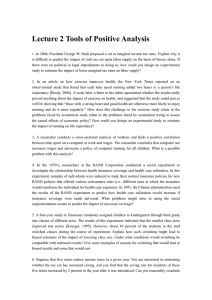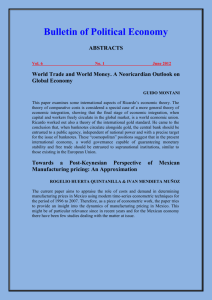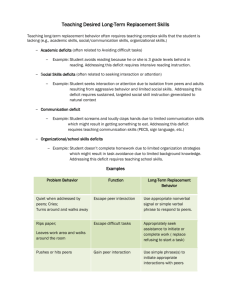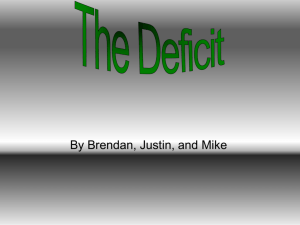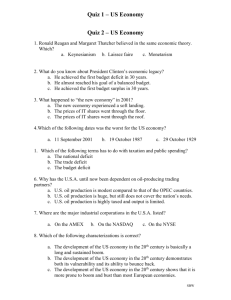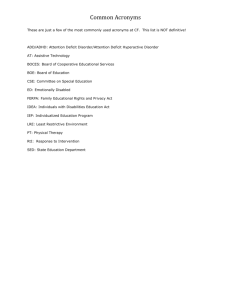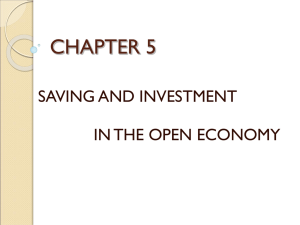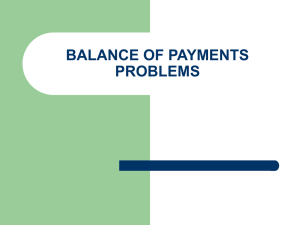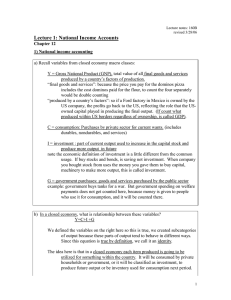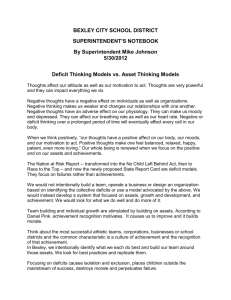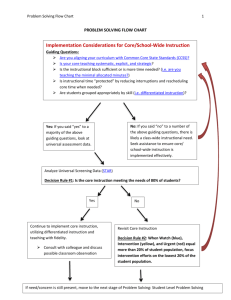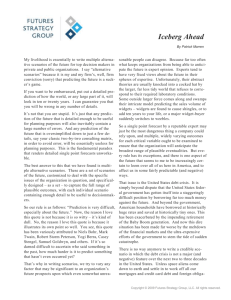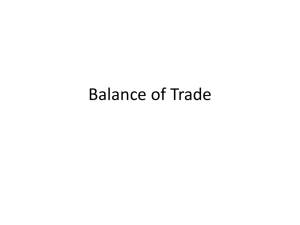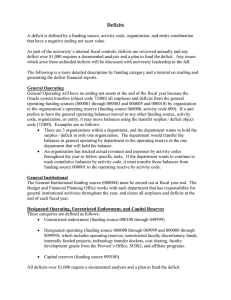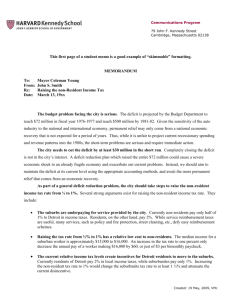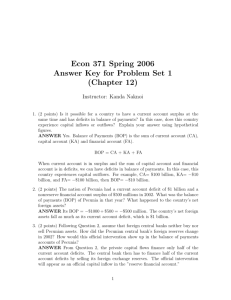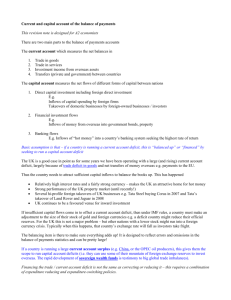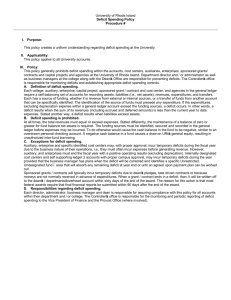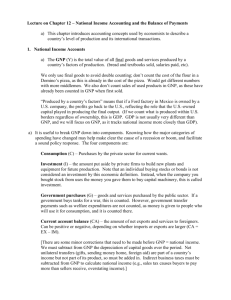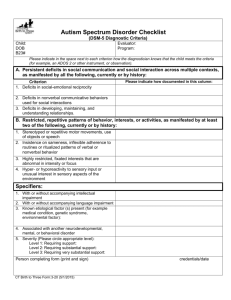Transcript
advertisement
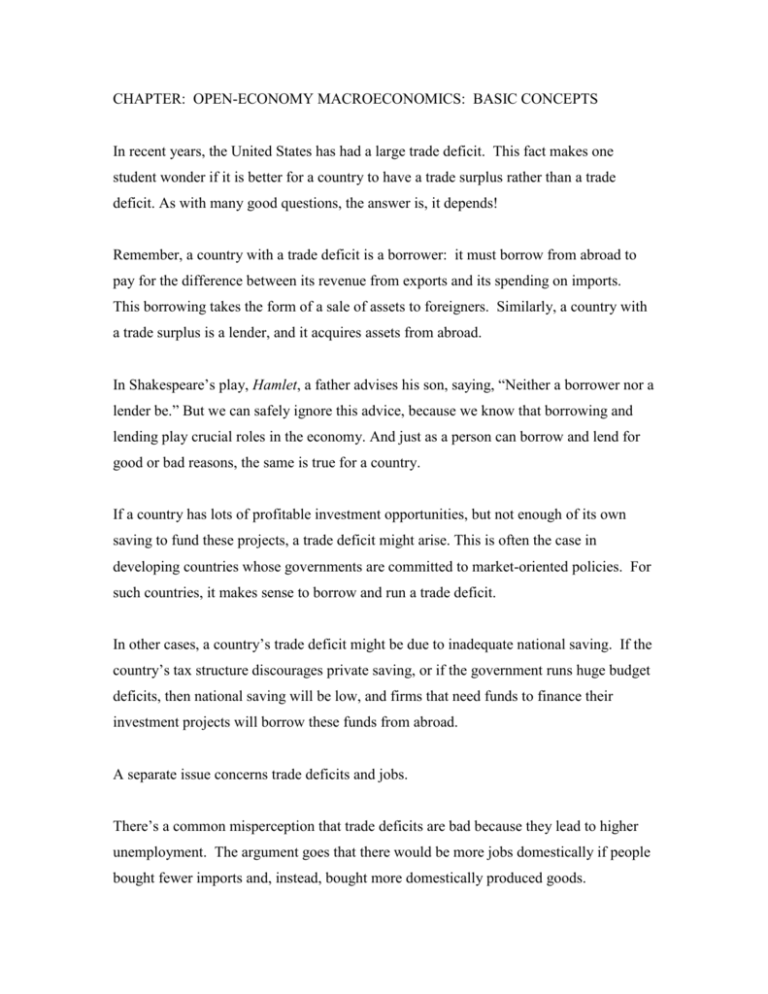
CHAPTER: OPEN-ECONOMY MACROECONOMICS: BASIC CONCEPTS In recent years, the United States has had a large trade deficit. This fact makes one student wonder if it is better for a country to have a trade surplus rather than a trade deficit. As with many good questions, the answer is, it depends! Remember, a country with a trade deficit is a borrower: it must borrow from abroad to pay for the difference between its revenue from exports and its spending on imports. This borrowing takes the form of a sale of assets to foreigners. Similarly, a country with a trade surplus is a lender, and it acquires assets from abroad. In Shakespeare’s play, Hamlet, a father advises his son, saying, “Neither a borrower nor a lender be.” But we can safely ignore this advice, because we know that borrowing and lending play crucial roles in the economy. And just as a person can borrow and lend for good or bad reasons, the same is true for a country. If a country has lots of profitable investment opportunities, but not enough of its own saving to fund these projects, a trade deficit might arise. This is often the case in developing countries whose governments are committed to market-oriented policies. For such countries, it makes sense to borrow and run a trade deficit. In other cases, a country’s trade deficit might be due to inadequate national saving. If the country’s tax structure discourages private saving, or if the government runs huge budget deficits, then national saving will be low, and firms that need funds to finance their investment projects will borrow these funds from abroad. A separate issue concerns trade deficits and jobs. There’s a common misperception that trade deficits are bad because they lead to higher unemployment. The argument goes that there would be more jobs domestically if people bought fewer imports and, instead, bought more domestically produced goods. But in the real world, high unemployment doesn’t systematically accompany large trade deficits. In 2000, for example, the United States had one of its biggest trade deficits in decades. But the unemployment rate that year was only 4% -- the lowest it had been since 1970. So remember, a trade deficit simply means a country is a net borrower, which, by itself, is neither a virtue nor a vice.
